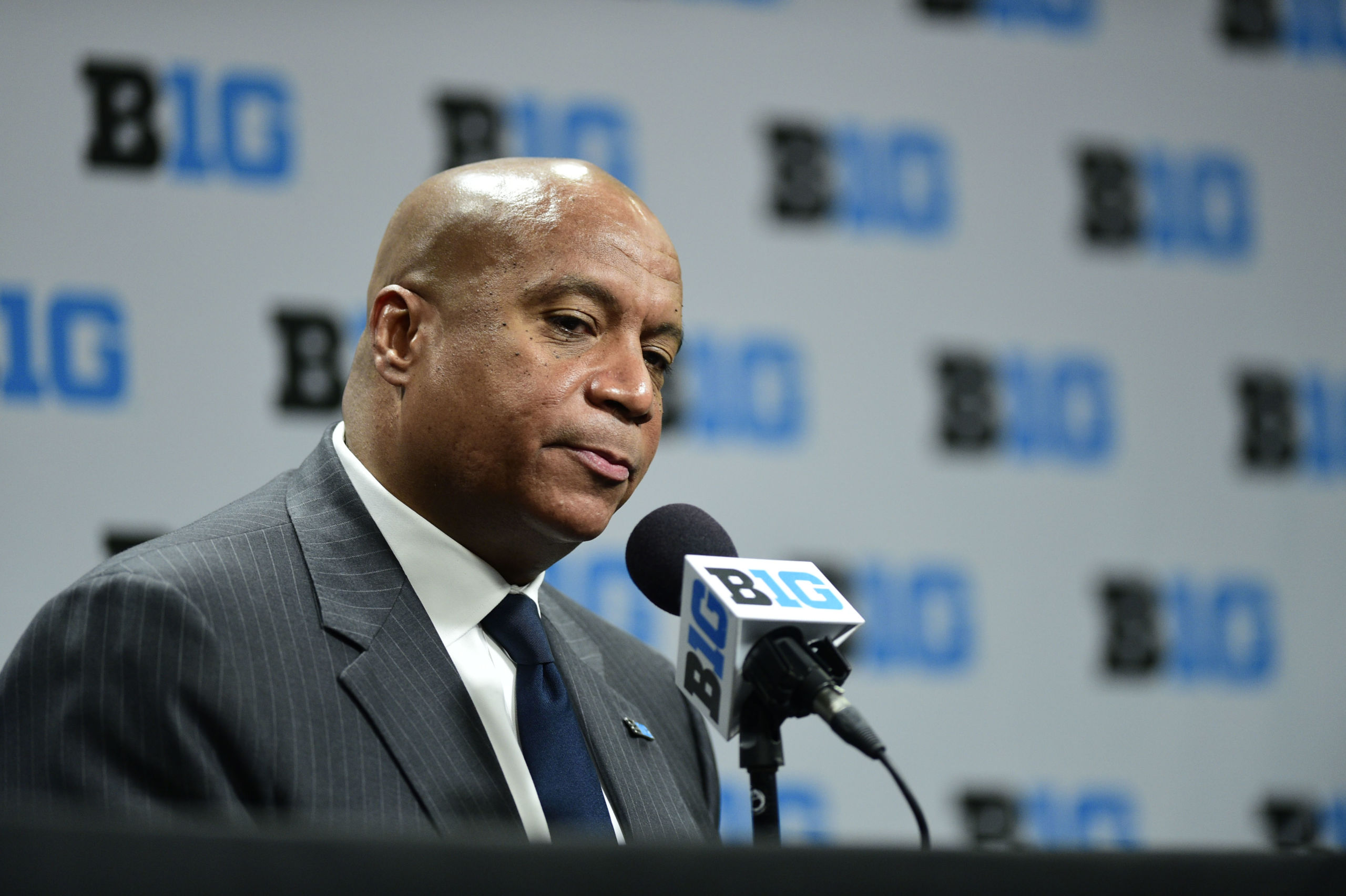On Thursday, the Big Ten signed the largest media rights package in college sports history.
One day later, Commissioner Kevin Warren said he is open to paying players a share of athletic department revenue in an interview with Bryant Gumbel on HBO’s “Real Sports.” He also suggested the Big Ten could eventually expand to 20 teams.
Further Expansion
In the Big Ten and SEC, conference realignment moves have created two up-and-coming “Super Leagues.”
In June, the Big Ten announced it will add USC and UCLA in 2024. Later, Warren said the future “may include” further expansion — though he never specified the number of teams.
“But it will be done for the right reasons at the right time,” he said.
As multiple reports have acknowledged, the conference would likely be interested in adding Notre Dame, as well as Oregon and Washington. Whether that happens in the next year or down the road, the conference is already set up to welcome new members.
The Big Ten’s blockbuster media rights deal — which will pay out mid-$7 billion over seven years — has language embedded to handle further media fee adjustments if additional schools join, a source told Front Office Sports.
Paying the Players
Warren indicated — as he has before — that he’s open to conversations about how schools could share revenue directly with athletes. “Those are the things that we have to resolve,” Warren told Gumbel. “We have to.”
He’s arguably already made some movement on this issue. Over the summer, the conference established an athlete advisory committee to give players a voice in conference decisions.
But the committee’s timing was suspect. It was announced shortly after news broke of an organizing effort among Penn State football players and an outside advocacy group to negotiate better medical resources and media rights revenue-sharing with the Big Ten.
When the effort was publicized, Penn State quarterback Sean Clifford — who was initially interested — decided to join Warren’s advisory committee instead.
Jason Stahl, who heads the outside organization, told FOS he believed administrators’ efforts were meant to weaken the movement, rather than create an alternative avenue for change. It’s unclear how much power the advisory committee will have, but Warren’s comments at least suggest he’s open to a conversation.
Either way, the issue isn’t going anywhere. Stahl said he still has multiple athletes signed up for his organization. And on Thursday, Ohio State quarterback C.J. Stroud told the Columbus Dispatch he wanted a cut of the Big Ten’s blockbuster deal.






![[Subscription Customers Only] Jun 15, 2025; Seattle, Washington, USA; Botafogo owner John Textor inside the stadium before the match during a group stage match of the 2025 FIFA Club World Cup at Lumen Field.](https://frontofficesports.com/wp-content/uploads/2026/02/USATSI_26465842_168416386_lowres-scaled.jpg?quality=100&w=1024)
![[Subscription Customers Only] Jul 13, 2025; East Rutherford, New Jersey, USA; Chelsea FC midfielder Cole Palmer (10) celebrates winning the final of the 2025 FIFA Club World Cup at MetLife Stadium](https://frontofficesports.com/wp-content/uploads/2026/02/USATSI_26636703-scaled-e1770932227605.jpg?quality=100&w=1024)









